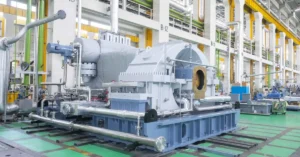As our world rapidly evolves, engineering is playing a crucial role in this transformation, pushing the boundaries of what’s possible across various industries. Cutting-edge engineering techniques are not just setting new standards but are also forging the path for future advancements. This blog delves into how these techniques are fostering change and leading us into a new era of technological innovation.
The Evolution of Engineering Methods
Engineering techniques have seen significant progress over the years. In the past, engineering was primarily based on manual processes and simple methodologies. With the advent of digital technology, there has been a major shift. Tools like computer-aided design (CAD) and advanced simulation software have revolutionized engineering practices, making them more accurate and efficient.
The introduction of artificial intelligence (AI) and machine learning has brought another wave of transformation. These technologies allow engineers to process large datasets, forecast outcomes, and enhance designs with unprecedented precision. This new approach provides a more flexible and responsive way to tackle complex engineering challenges. Source: https://edc.design
Breakthrough Techniques Shaping the Future
Among the most exciting innovations in engineering are advanced materials. Engineers are developing materials with extraordinary properties, such as self-healing concrete and nanomaterials, which offer improved durability and functionality. These advancements are impacting various fields, from construction to electronics, delivering solutions that are both sustainable and effective.
In the energy sector, innovative techniques are driving the shift towards renewable resources. Improvements in solar panels and wind turbines are making these technologies more efficient and affordable. Additionally, progress in energy storage technologies, including advanced batteries and supercapacitors, is addressing the challenges of renewable energy intermittency, contributing to a greener future.
Industry Impacts
The influence of cutting-edge engineering techniques extends across multiple industries. For example, in the automotive sector, innovations like self-driving cars and electric propulsion systems are redefining transportation. Engineers are creating sophisticated algorithms and sensor technologies that enable vehicles to operate autonomously and efficiently, reducing the reliance on human control.
In aerospace, advancements such as 3D printing and new materials are transforming aircraft manufacturing. These innovations are lowering production costs and enhancing aircraft performance, leading to more efficient and eco-friendly air travel. The ability to produce complex components on-demand is also streamlining manufacturing processes and enabling tailored solutions.
Challenges and Future Directions
Despite the impressive advancements, there are hurdles to overcome with these innovative techniques. Ensuring the safety and reliability of new technologies requires extensive testing and validation. Additionally, there are ethical considerations regarding AI and concerns about potential job losses due to automation.
Looking ahead, the future of engineering promises even more groundbreaking developments. The integration of technologies like the Internet of Things (IoT), blockchain, and advanced robotics is expected to drive further progress across various sectors. Engineers will continue to play a vital role in navigating these advancements, addressing challenges, and exploring new possibilities.
As these technologies continue to evolve, one key component that will remain essential could be a ble module. These modules would persist to play a significant role in IoT, enabling more efficient device connectivity and seamless communication across networks, which is often critical for the evolution of smart systems.
Conclusion
Cutting-edge engineering techniques are central to driving transformation and shaping the future. From advanced materials and renewable energy solutions to autonomous vehicles and 3D printing, these innovations are revolutionizing industries and enhancing our lives. As we continue to advance, engineers will be at the forefront, leveraging these techniques to solve complex problems and push the limits of what’s achievable. The journey of engineering innovation is ongoing, with its impact set to resonate across all areas of society.






